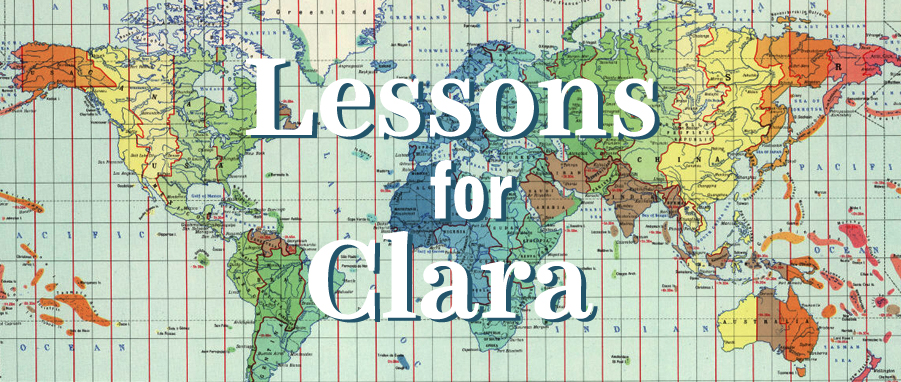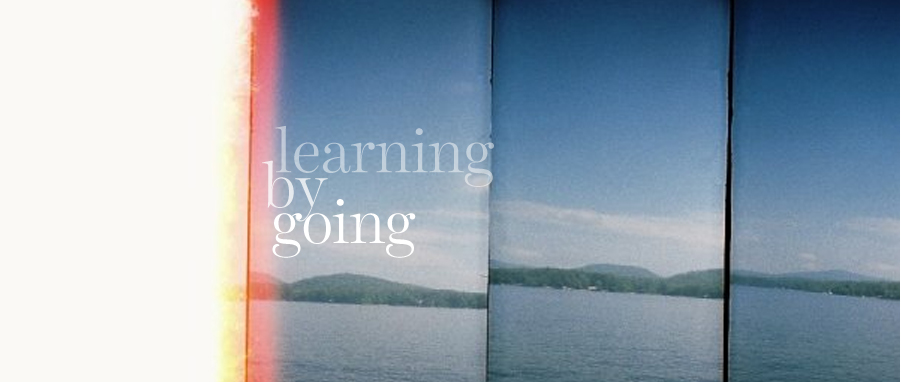A few weeks ago, I had a conversation with a friend-of-a-friend, in which he essentially said this to me (and I am paraphrasing here): “You know the main reason my wife and I decided not to have children is because I think the world is falling apart at the seams and we, as a species, are doomed. I didn’t want to saddle another generation with this mess.” My jaw fell slack and my response was an awkwardly managed and strangely delayed “Oh, MmHmm . . .” Having rather recently procreated, myself, I am, perhaps more sensitive to the insinuation that having children might be a selfish act and one that a reasonable and humane person would sacrifice, based on the state of the planet. And yet, I was also surprised by my initial instinct which was to reply with, “I totally hear you and I mostly agree!” Part of the reason for the bungled response was pondering whether the mother of an infant should be concurring that having children is crazy, all things considered. It should be established that this person works in an industry that bears intimate witness to both the real impact of climate change and the barriers to spurring governments, individuals, and cultures to reverse course. He also described a feeling more generally that he enjoyed a measure of freedom, loved to travel, etc., but his main thesis really stuck with me. It got me ruminating about the rationale for having children and where we are as a society—you know, nothing heavy. In some ways, despite clawing my way to motherhood against tough odds and having a singular focus about it for years on end, I can utterly relate to the idea of not wanting children. Like any haughty adult enjoying the relative ease of life and limitless possibilities that come with a child-free future, I have fantasies of coming home at the end of the day and flitting off to a movie or hopping a plane to Bermuda. The beginning of the end of my first marriage started with a conversation in which my ex-husband declared he had decided he didn’t want children because, “What if I want to just, like, go to Costa Rica?” At the time, he had never traveled outside the United States, save a solitary surf trip to Mexico, and he didn’t even have a driver’s license. But this straw man danced around in my head and the phrase “Costa Rica,” eventually became code to me for “noncommittal.”
The other problem with this, obviously, being: When was I ever a person who was able to come home at the end of the day and flit off anywhere or hop a plane to anywhere? Let’s face facts: I plan things. Basic work-life functions and my own overdeveloped sense of responsibility slash free-floating anxiety have basically ruled this kind of behavior out for me a long time ago. This truly has very little to do with newly caring for a living being. I have always been more attracted to a cozy evening curled up with magazine, husband, and domestic beast than to painting the town. I have a knitting phase in my history, I have hosted more than one “game night” at my place . . . you don’t need further elaboration, of this I am sure.
Traveling with children is a bit more intimidating, although I do have the goal of providing as many diverse experiences as possible for my kids. While I realize that taking a child to a place that is inhospitable, inaccessible, dangerous, etc. is no longer in the cards, (which it never was for me, either, frankly) I don’t think my only option remains a Disney Cruise. I have lots of examples in my life of people picking up and exploring exotic places with one, two, three (!) kids, even living abroad in somewhat “colorful” circumstances. And the people I know who have gone down this road range from families with endless resources and major job security to those working with a shoestring and cobbling together freelance gigs to make it work. So, let’s strike that from the list.
Now on to the issue of the world and how it appears to be unraveling. There is no denying that we are in crisis with the environment. But, how do I know that my kid won’t be the person who develops some sensational new technology that quite literally saves the world? I worry much more about the way our politics, culture, and social norms have degraded. Here again, I like the idea raising a person who might contribute positively in these areas, even better than we have. And to experience the children of our friends and family and see what lovely, tiny human beings are all around us, I am increasingly confident that we can tip the scales in the direction of progress.
There is no doubt that some element of child rearing is profoundly narcissistic. By definition, you are creating and shaping a person and then offering that person to the world in your likeness. This is true whether or not you have biological children. Then again, I still submit that if all of us out here---imperfect, but kind and loving (sometimes snarky)---raise children with good hearts and strong minds, there are larger benefits than just how it makes us feel to be loved and see ourselves reflected.




























